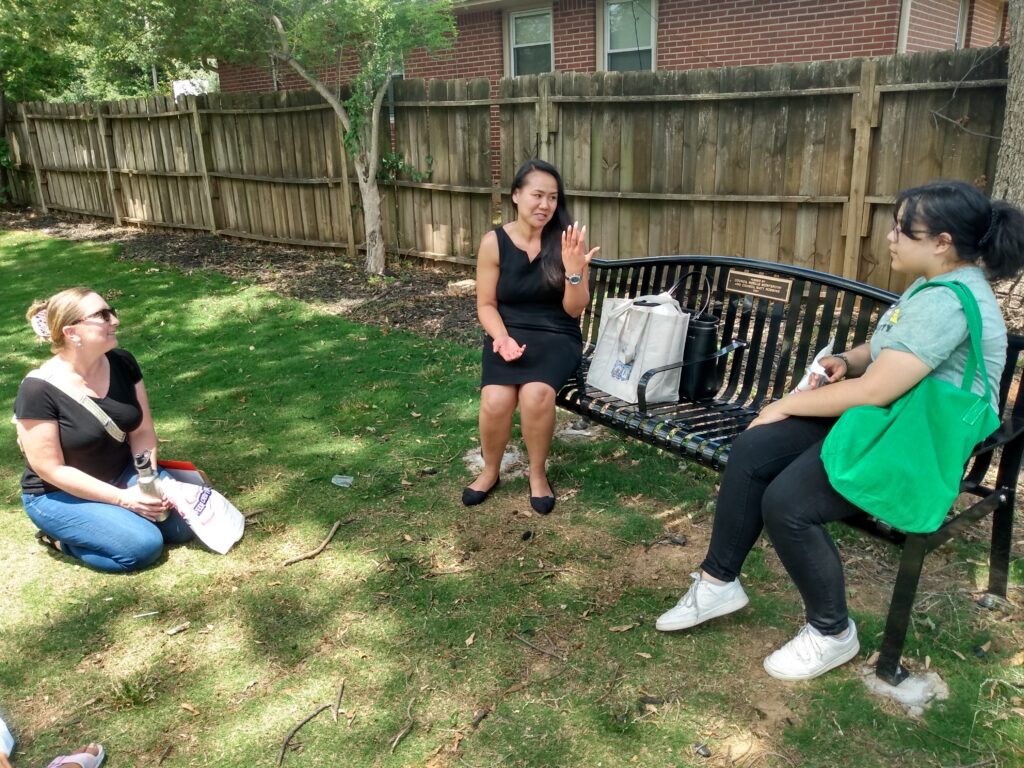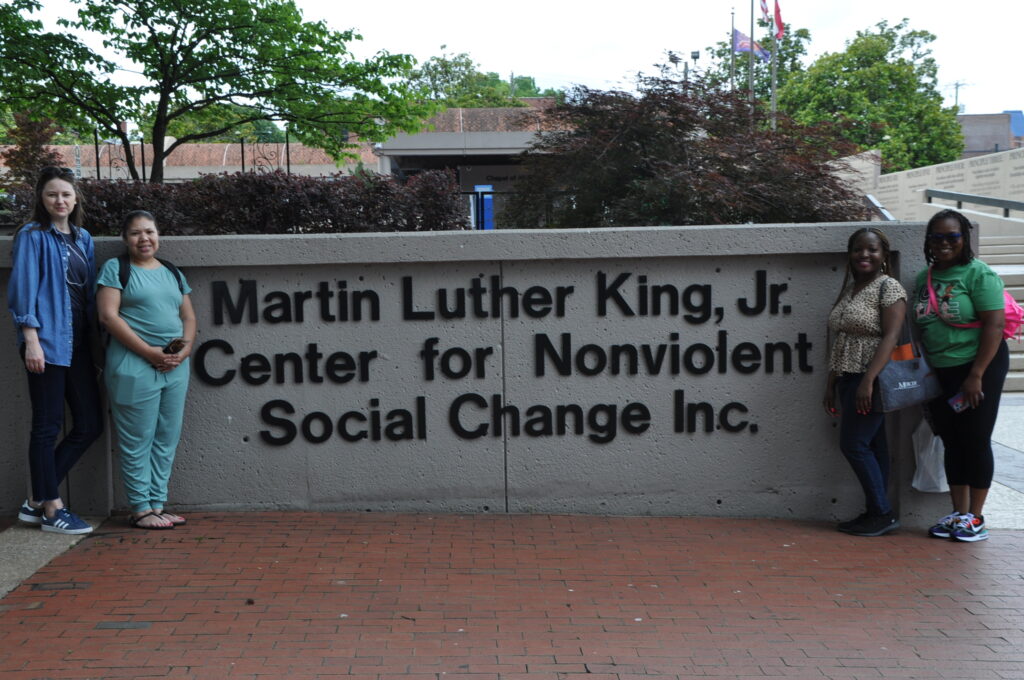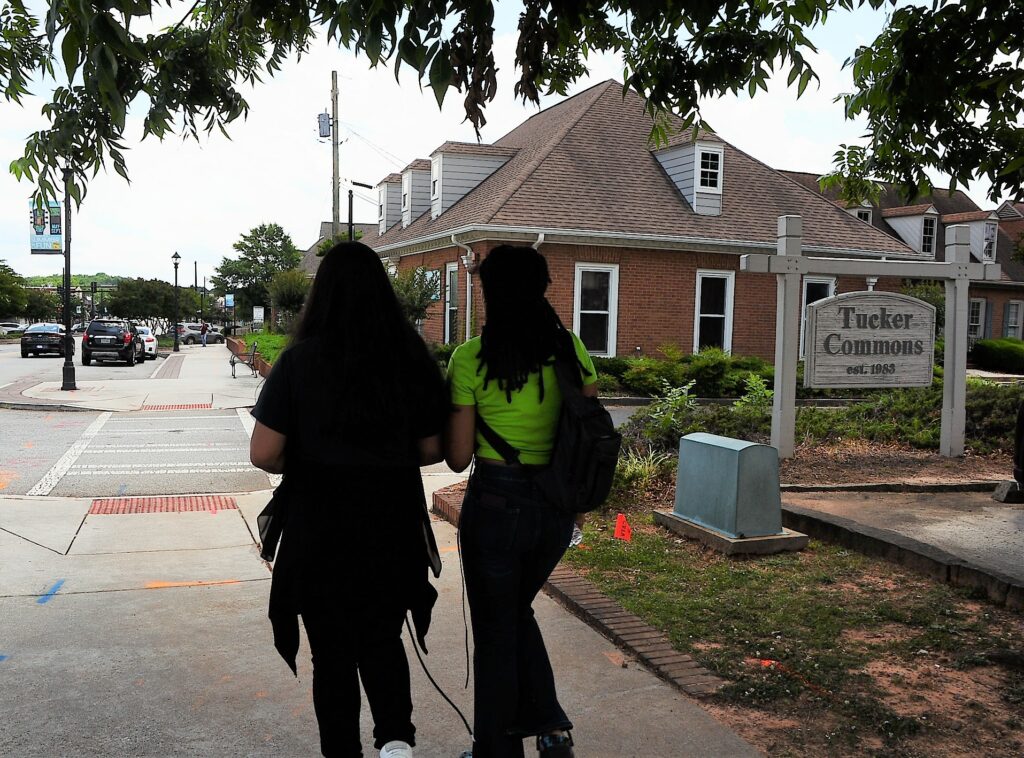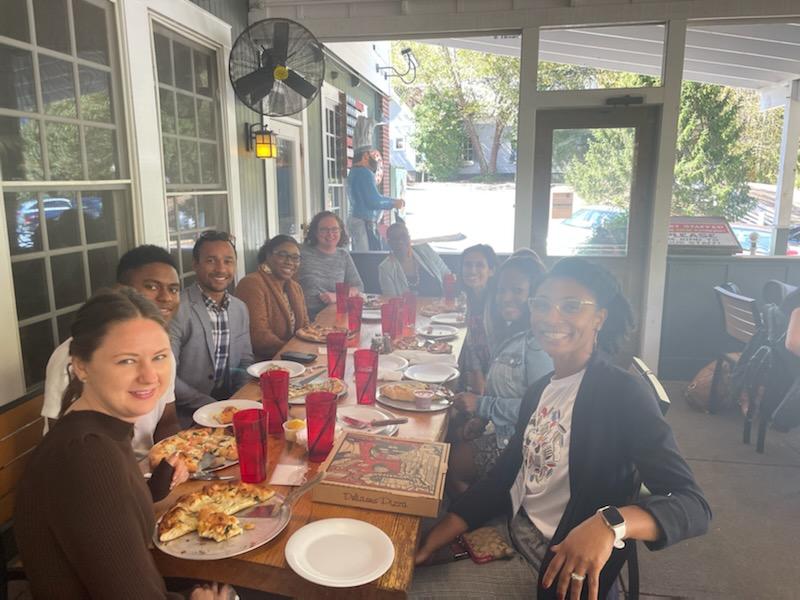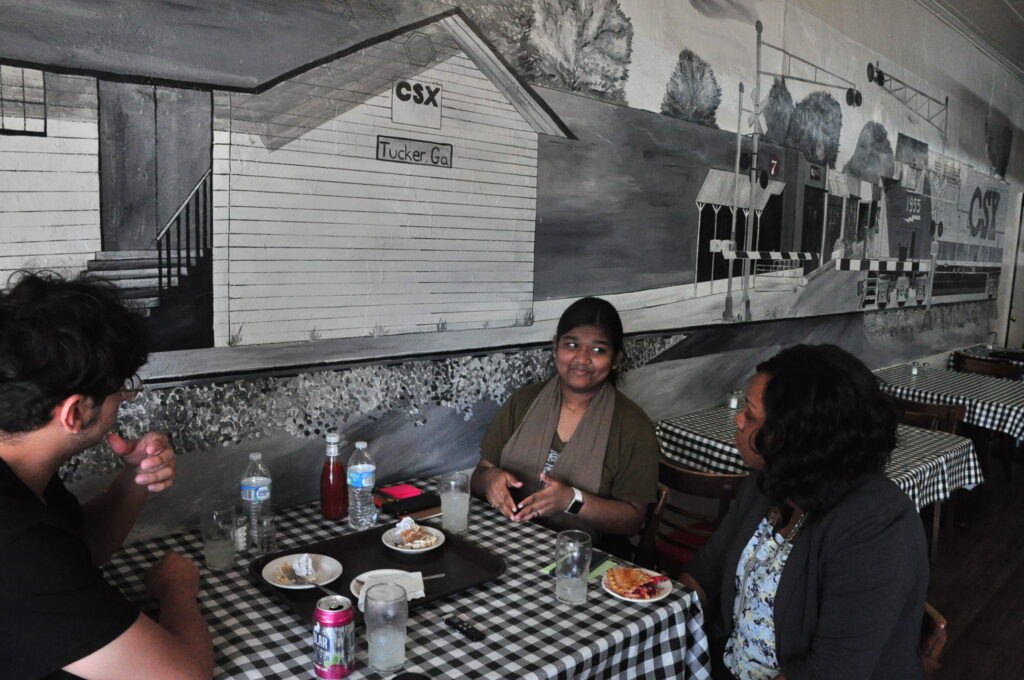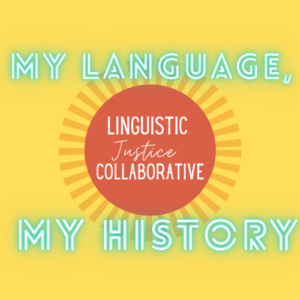
Resources
The Linguistic Justice Collaborative members seek innovative ways to ensure the curricular and instructional ideas and resources created with community members are made available for families, educators, schooling systems, and policy makers.
Curricular Resources
- Critical Conversation Cards: Spark conversation with others about language, language diversity, and language ideologies
- Classroom Posters
- Examples of language and linguistic justice task cards aligned to Georgia Standards of Excellence for English language arts
- Wordless directions for media centers: Google Translate Books with Lens
- Create a display in your school to teach Georgia history and place through middle and secondary texts. Books are aligned with 7th and 8th grade GSEs for ELA and Social Studies. Timeline, Books by place, Books Chronologically, and Georgia Places.
- Next Steps Resources for Professional Learning
- Looking for examples of translanguaging monolingual texts? See the videos from Rosi, below!
- Place Based Partnering: Georgia, an archive of Georgia storytelling, languages, and histories.
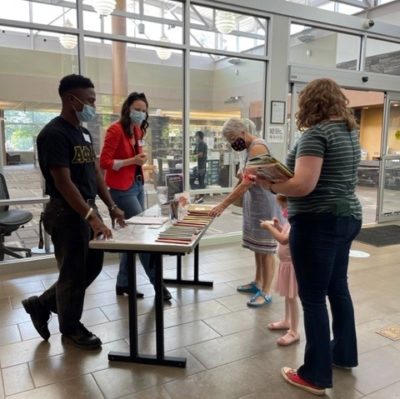
Read All About it
We are committed to ensuring every project results in open access resources. Recent publications from collaborators include:
- Leah Panther unpacks linguistic justice and the law, considering how language, race, disability, and the law protect educators who teach for linguistic justice in Scribbles ‘N Bits’ spring issue.
- Latoya Tolefree’s dissertation is now availability in ProQuest: “A Multigenerational Narrative Inquiry: Exploring Black Joy Through Language and Literacy”
- Leah Panther, Natasha Ramsay-Jordan, Laura Eby, and Lasha Lalana share the curriculum for teaching place-based financial literacy by centering community literacies and community cultural wealth in Social Education “Being and Seeing_Teaching Financial Literacy through Community Wealth“.
- Rosi Sanchez considers the relationship between disability and language in “Language, literacy, and (dis)ability” in the Georgia Advocates for Literacy Association’s publication FOCUS.
- Caitlin Hochuli connects literacy, language, and place in “Finding place through literacy” for the Georgia Council for English Teacher’s publication Scribbles N’ Bits.
- Leah Panther, Natasha Ramsay-Jordan, Laura Eby, and Lasha Lalana share about the Financial Language and Literacy program in the Journal of Literacy Innovation’s special issue. “The most me”: Place and community cultural wealth for financial literacy learning
- Leah Panther, Andrea Crenshaw, Hannah Edber, and Rachael VanDonkelaar write about Georgia literacies for Georgia learners: Advocating for community literacies in the Georgia Literacy Advocates FOCUS newsletter.
- Leah Panther and Latoya Tolefree explore how testimony, a trauma informed literacy practice, can be used (and misused) as part of healing pedagogies for youth in the article Youth Testimony to Contend With Trauma in the Journal of Language and Literacy Education.
- Andrea Crenshaw and Leah Panther think about linguistic justice in teacher education in the Georgia Council of Teachers of English most recent issue of Scribbles N’ Bits as part of the quarterly column “Linguistic Justice”.
- Felicia Baiden’s article In Active Pursuit of Linguistic Justice in the “Linguistic Justice” column of Scribbles N’ Bits explores how Black Language is (and isn’t) sustained in literacy classrooms.
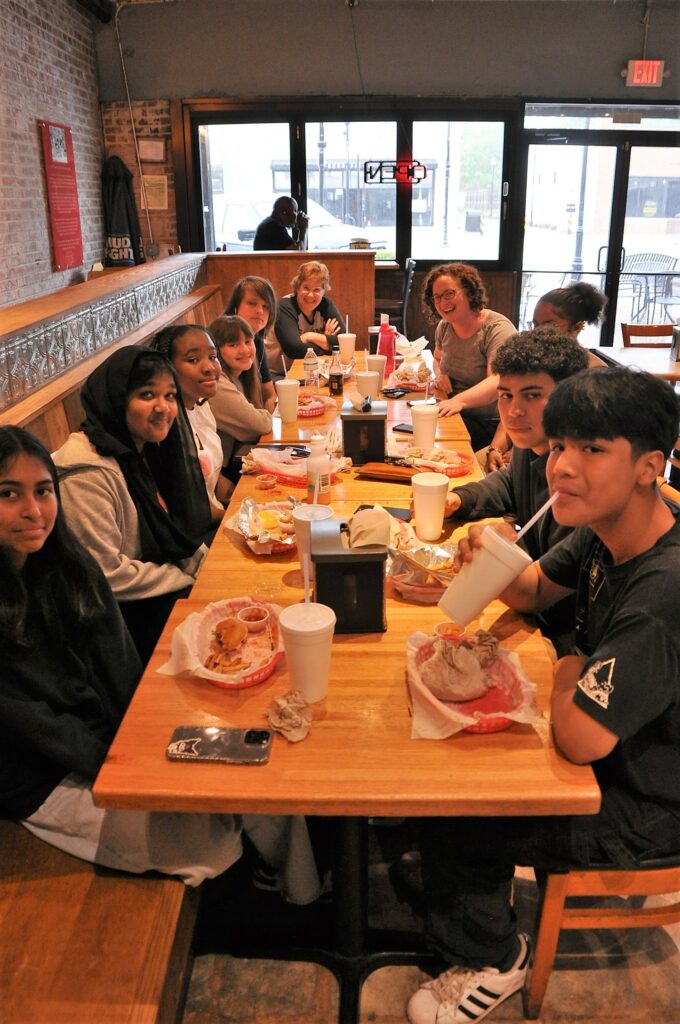
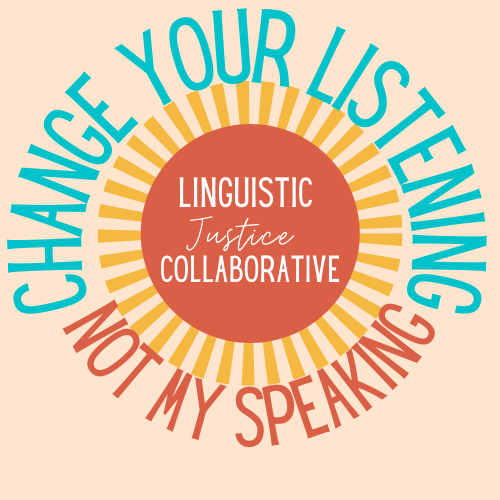
Organizations and Websites
“Black Language Syllabus” for Black Linguistic Justice http://www.blacklanguagesyllabus.com/
“Teaching African American Language” https://www.teachingaal.org/resources
“ORAAL: Online Resources for African American English” https://oraal.uoregon.edu/resources/educational/K-12
“Just Communities/Comunidades Justas” https://www.just-communities.org/lji
“Community Language Cooperative” https://communitylanguagecoop.com/language-justice/
“Foxfire” https://www.foxfire.org/
“Highlander Research and Education Center” https://highlandercenter.org/our-story/mission/
“Center for Participatory Change” https://www.cpcwnc.org/
“School Based Participatory Action Research” https://www.schypar.org/
“Youth Participatory Action Research Hub” https://yparhub.berkeley.edu/home
